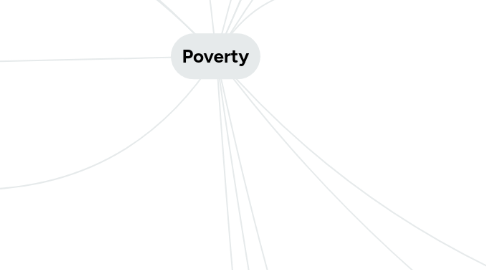Poverty
by Lamya M


1. The importance of economic factors to the understanding of any particular conflict will always be a source of dispute
2. Internal solutions for internal problems
3. Narrowing the gap b/w industrialized & developing countries
4. Solutions (Government Policy)
4.1. Protection of minority groups
4.2. Effective aid policy & outreach programs (rural areas)
4.3. Independent judicial/legal system
4.4. Proper public health care services
4.5. Better public education
4.6. Strong civil society
4.7. Accountable armed forces & police service
5. Conclusion
5.1. How should international donor/peace-building organizations give aid during or after conflict?
5.1.1. To what extent does poverty cause revolution?
5.2. What is the most effective approach in measuring poverty?
5.2.1. How does Marxist theory on capitalism relate to the relationship between poverty & war?
6. "Voicelessness and Powerlessness”
7. Increase in chronic health problems (AIDS, malaria, tuberculosis)
8. Modernization Theory
9. Colonialism-marginalization of the poor
10. Poor continue to become "poorer" (micro vs.macro economic effect of war)
10.1. New political economy (Sierra Leone)
10.2. Task
10.3. Prerequisites
11. Huntington: Land maldistribution/landlessness = revolution (Salvador & Nicaragua vs. Panama & Costa Rica)
12. Globalization (military force and arm sales)
13. Conflict
13.1. Rebel groups (Sierra Leone & Sri Lanka)
13.1.1. External shock (trade or loss of resources)
13.2. Horizontal Inequalities vs. vertical inequalities
13.3. Rigorous Approach: lack of basic services=societal stress= spark
13.3.1. Anecdotal Approach: Accumulation of wealth = greed & chauvinism rather than grievance (poverty)
13.4. Weak government in managing scarce resources
13.5. Clash of Civilizations
14. War
14.1. Poverty & war = vicious cycle
14.2. Poor people used in war (soldiers)
14.2.1. Task
14.2.2. Prerequisites
